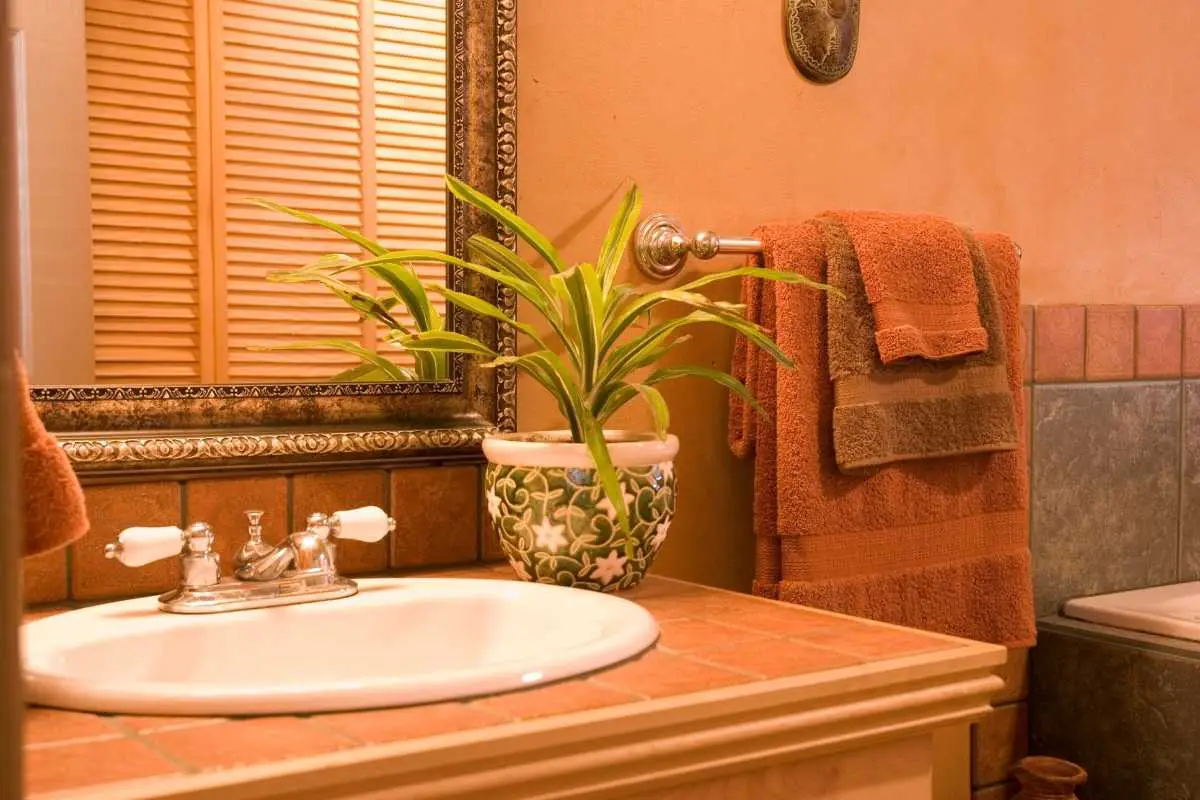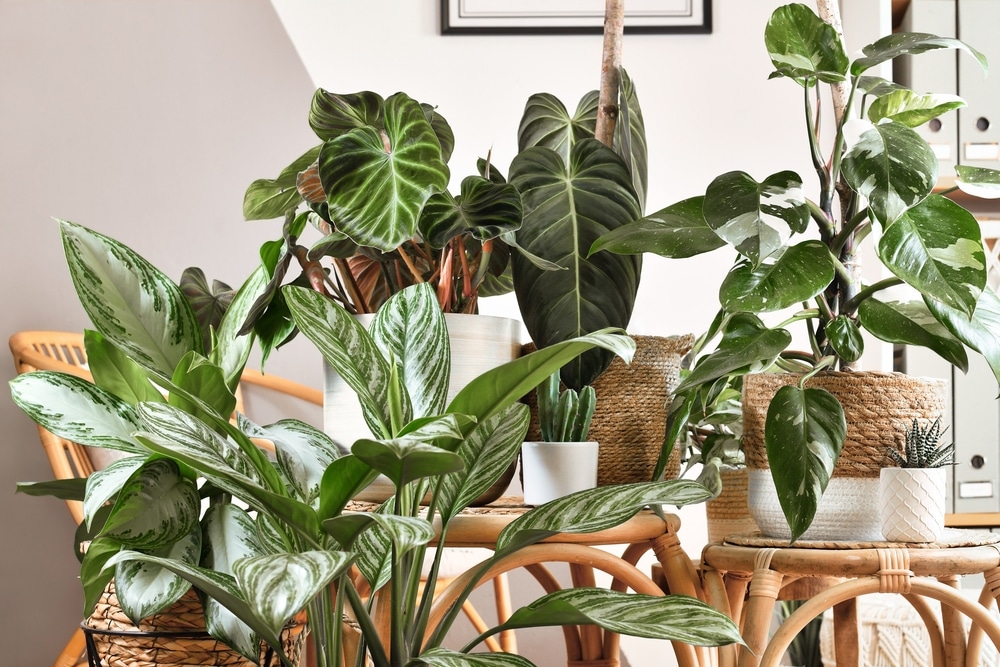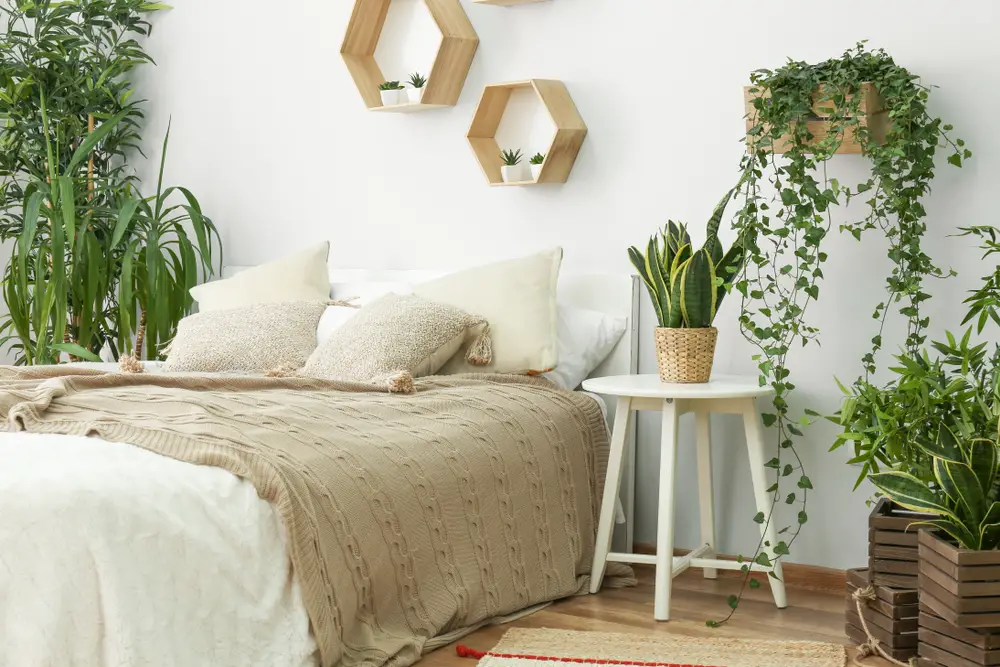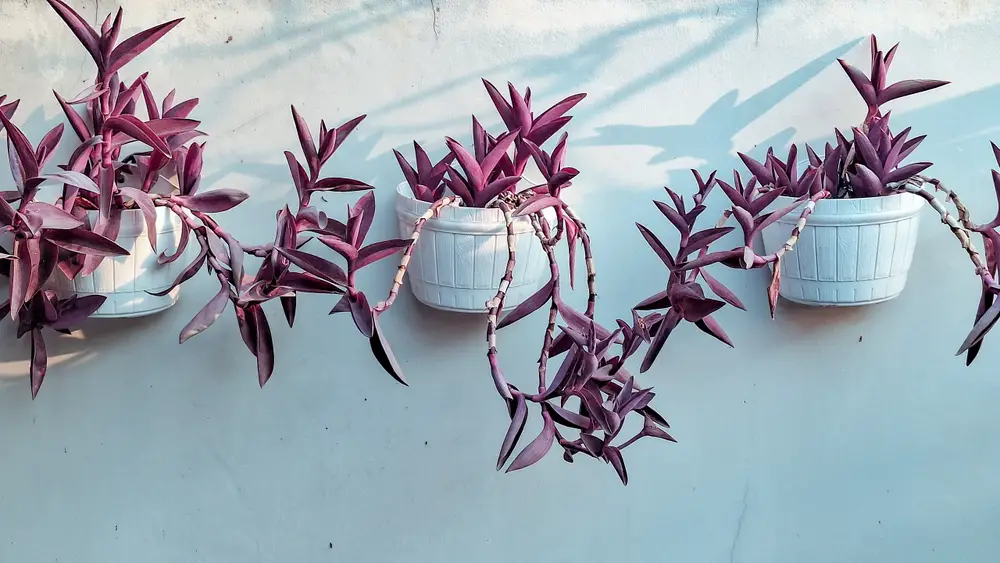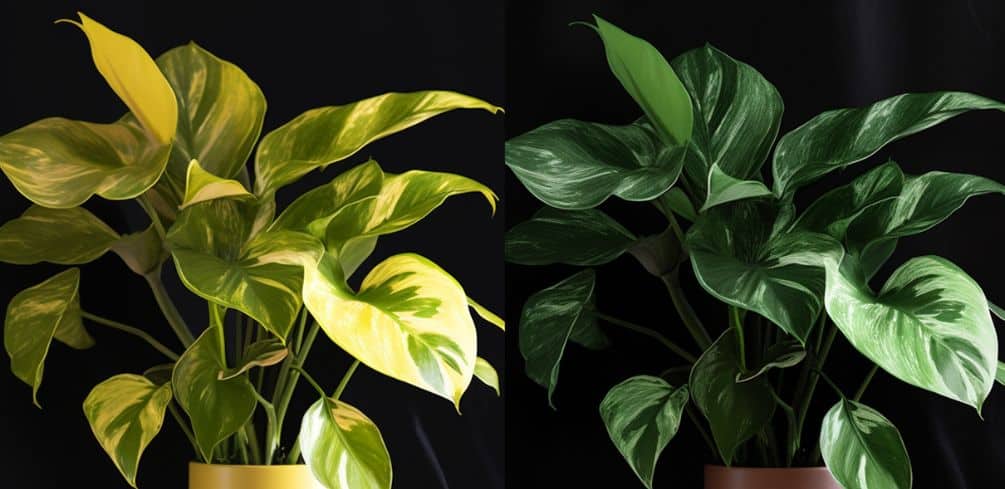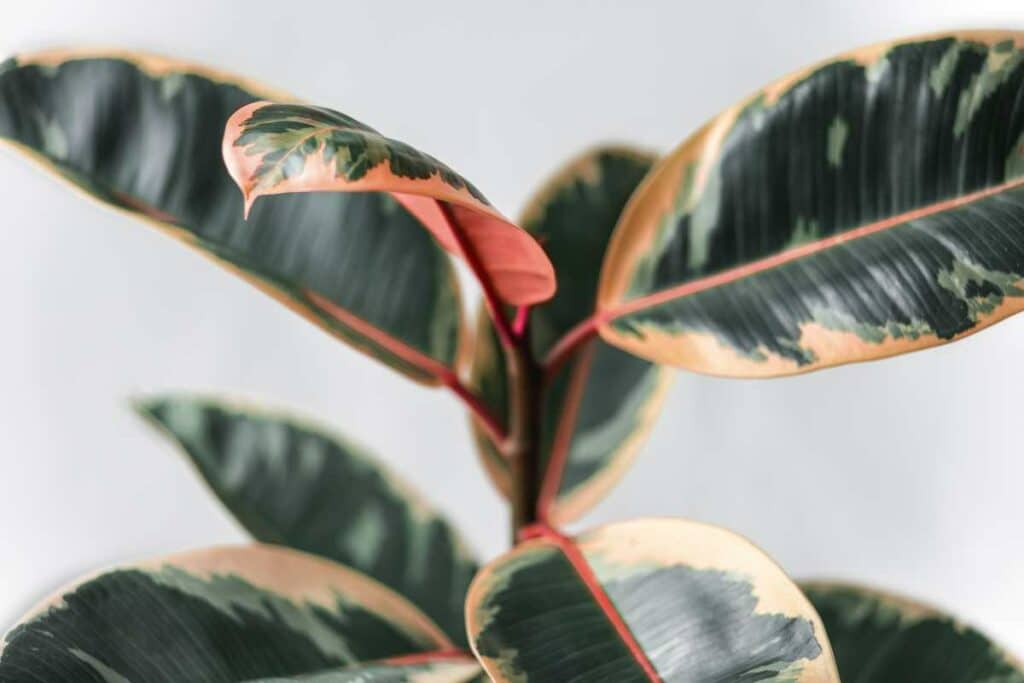Some people are not familiar with bathroom plants that absorb moisture, but they are a great addition to your home.
People often use artificial plants in the bathroom, but real plants are a great option.
Plants that absorb moisture can improve your decor and purify the air in your bathroom, and they boost your energy and your mood. There are a number of different bathroom plants that are beautiful, including English Ivy, Peace Lilies, and Spider Plants. Any of the following will absorb moisture and enhance your bathroom.
1. English Ivy
English ivy is a popular indoor plant, and people often plant it in a hanging basket.
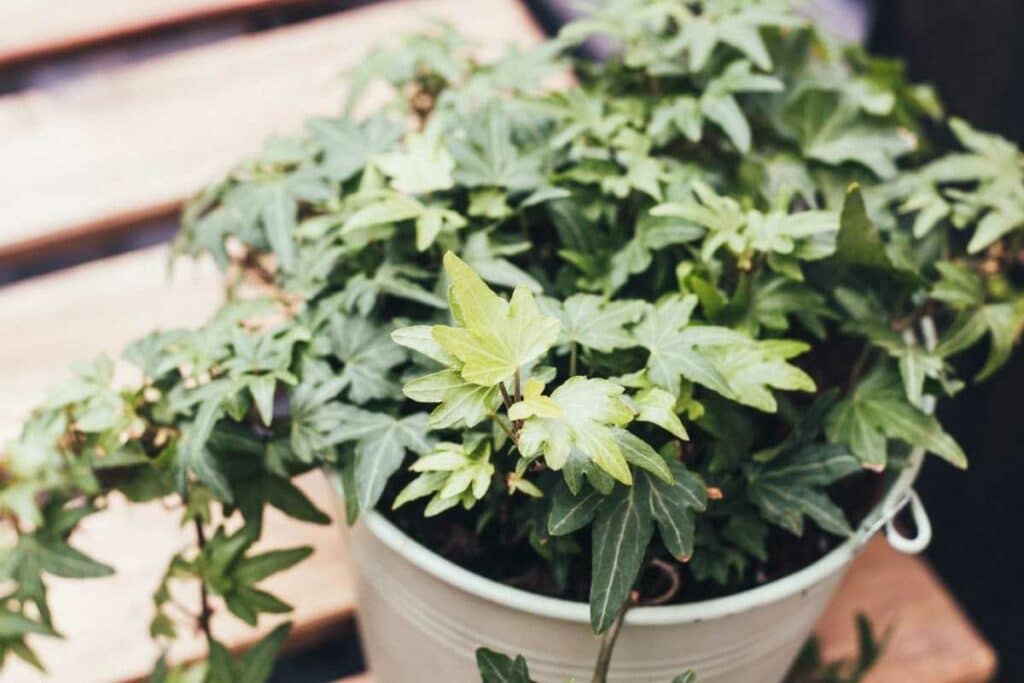
You can place it in your bathroom, and it will absorb moisture from the air.
In addition, it helps remove other contaminants from the air, including the formaldehyde in soaps, detergents, or carpet treatments.
It combats mold, and it is very easy to take care of.
English ivy doesn’t need a lot of light, so it even works in bathrooms without large windows.
2. Peace Lilies
The peace lily plant is able to absorb moisture through its leaves, so you do not need to water it all the time.
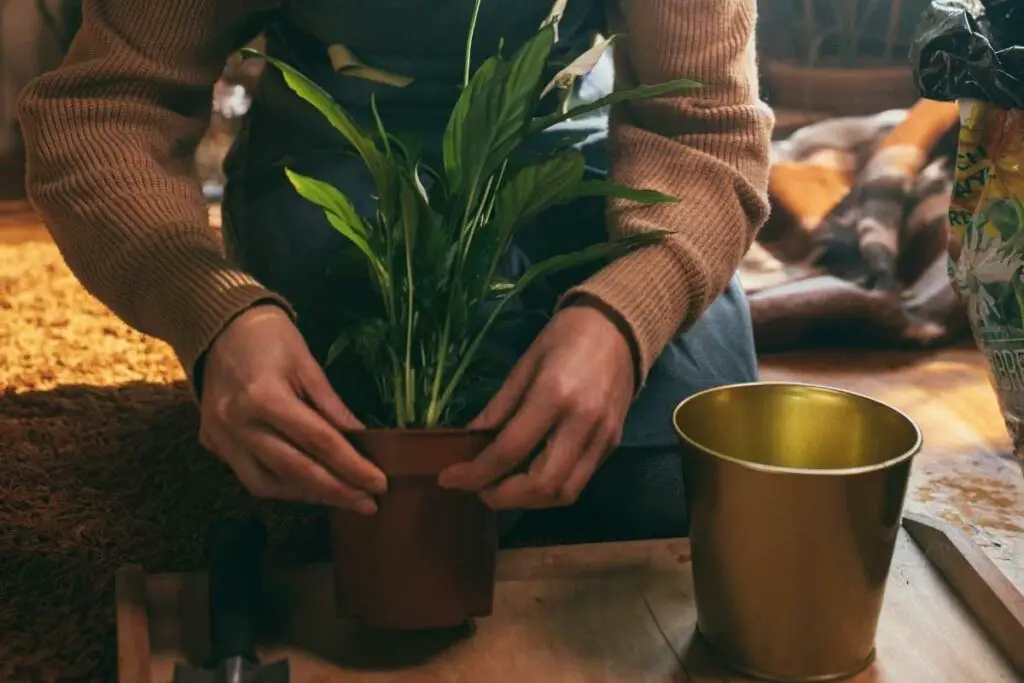
It doesn’t require much light, so it does better than other plants in the bathroom.
In addition to absorbing moisture, it purifies the air by neutralizing contaminants. The only downside is that it can be toxic to pets or children.
It is important to make sure that the plant is out of reach.
3. Spider Plant
The spider plant is a very attractive plant, and it has smooth leaves that rise up and arch out.
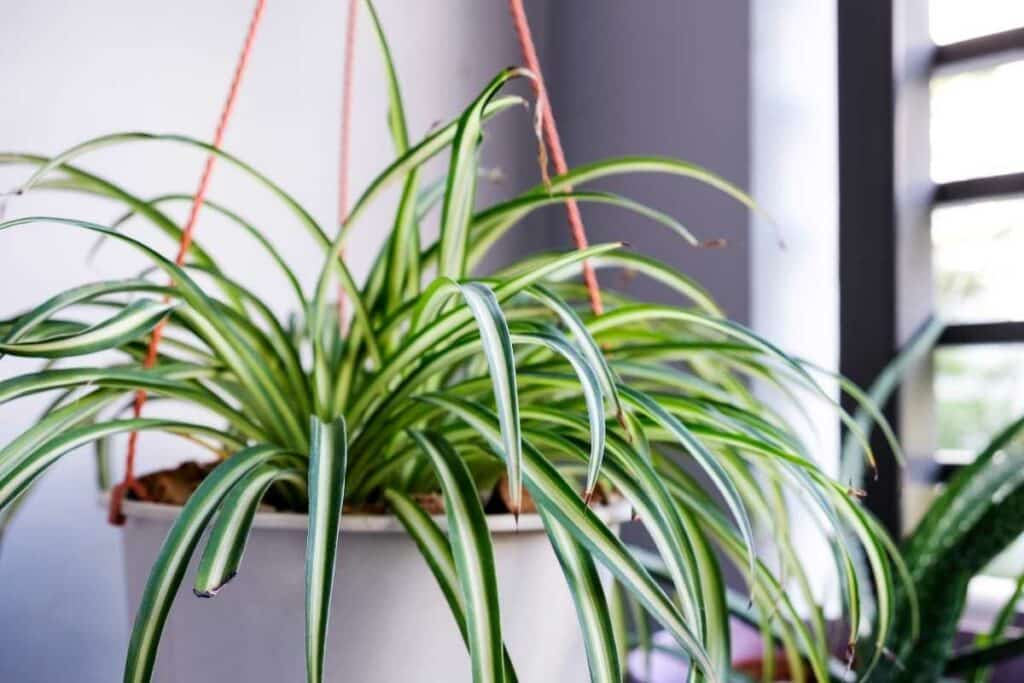
It is a great option for your bathroom because it removes as much as 90% of the moisture in the air, and it also removes toxins and contaminants from the air.
Spider Plant can purify the air and make your bathroom a more pleasant place.
4. Reed Palm
If you live in a place that has a lot of humidity, the reed palm might work well for you.
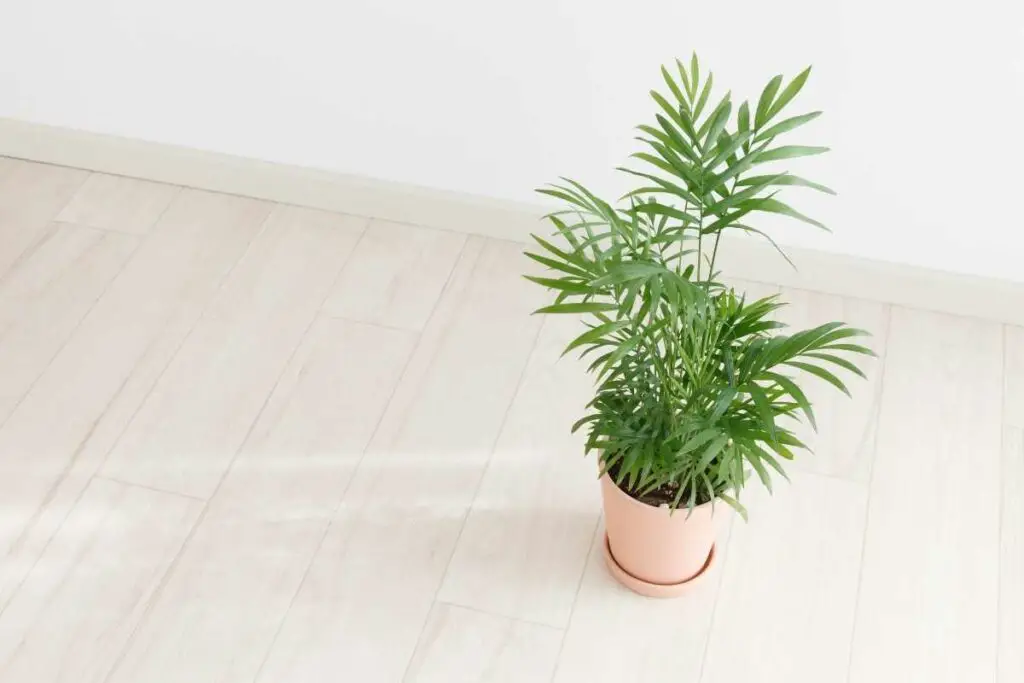
It is often found in tropical climates, and it thrives in the bathroom. It can absorb moisture out of the air, and it grows without a lot of natural light.
Reed Palm helps purify the air by absorbing contaminants. It looks great in a pot in the corner.
5. Boston Fern
Another indoor plant that does well in your bathroom is the Boston fern.
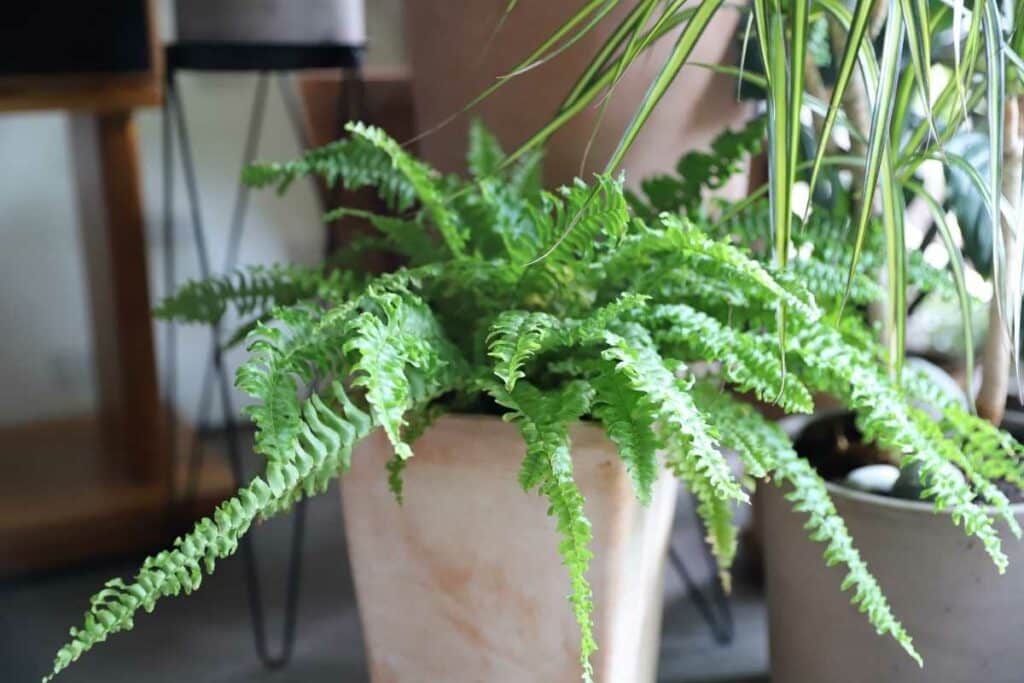
It can handle indirect sunlight, and it loves the moisture. It will absorb the moisture without any trouble, so it helps prevent mold and more in your bathroom.
The Boston fern actually needs the moisture, so you should mist it during times when the bathroom doesn’t have a lot of extra humidity.
6. Bird’s Nest Fern
This is another type of fern plant, and it also does well with low light.
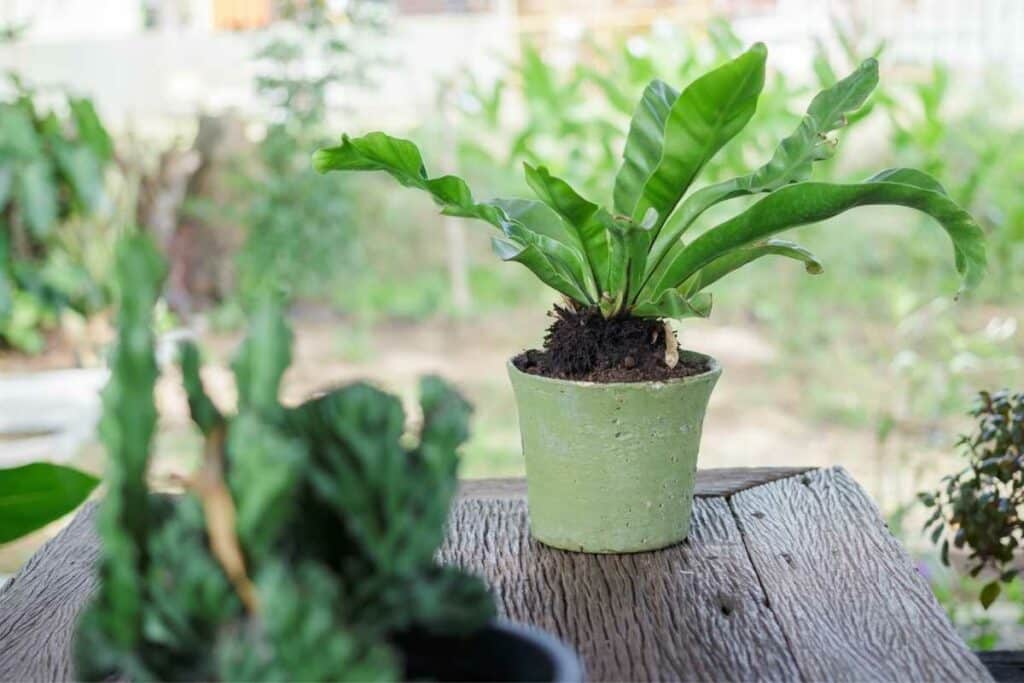
It can handle the moisture in your bathroom, and it will thrive.
Bird’s Nest Fern is a beautiful plant that has large leaves. It is a deep green, and it adds to the decor in your bathroom.
Know This: You have to maintain it because it grows more than other plants.
7. Orchids
The orchid has beautiful flowers in shades of pink and white.
It doesn’t need a lot of light, and it does well with humidity.
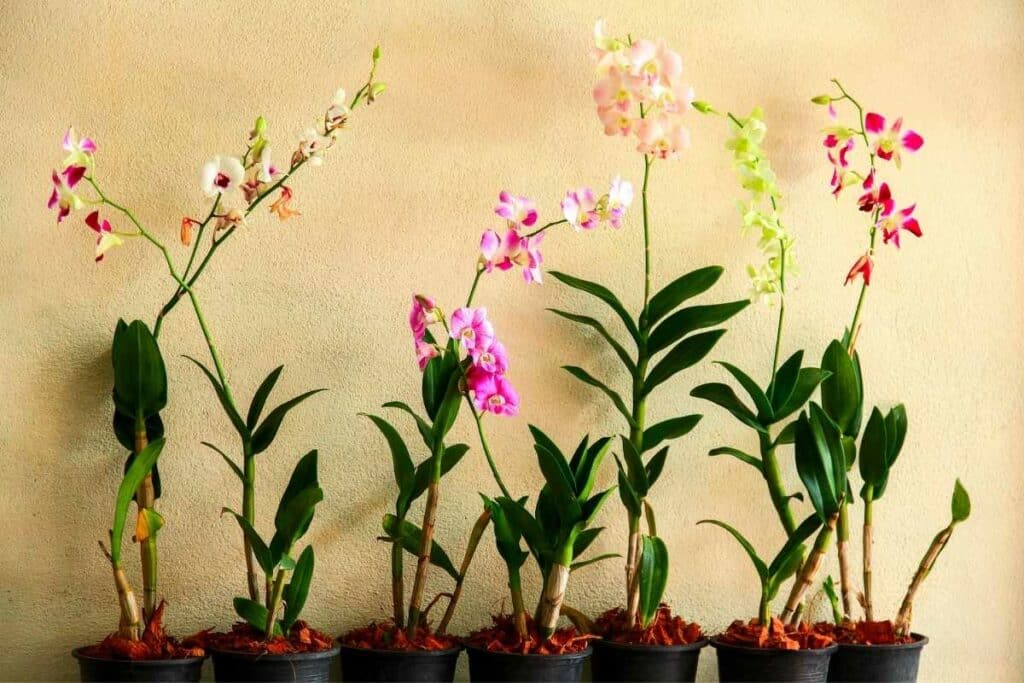
It also prefers the same room temperatures as people, so it does well in your bathroom.
Orhids will absorb excess moisture in your bathroom, and it blooms several months of the year.
If you want a moisture-absorbing plant with a pop of color, this is a great plant.
8. Calathea
Another plant with a touch of color is calathea.
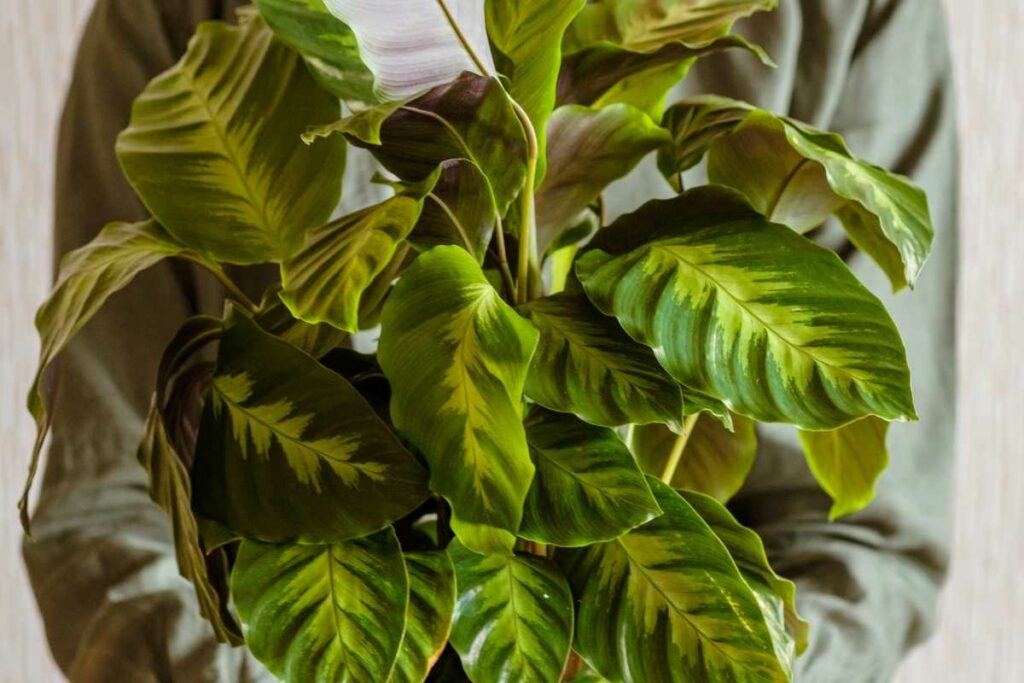
It responds well to humidity and absorbs moisture. Similar to other plants, it doesn’t need direct sunlight, and it does well in your bathroom.
Calathea has large round leaves that can come in pink with an outline of dark green.
It looks great and helps absorb moisture in your bathroom.
9. Dracaena
This is another leafy plant, and it is very attractive.
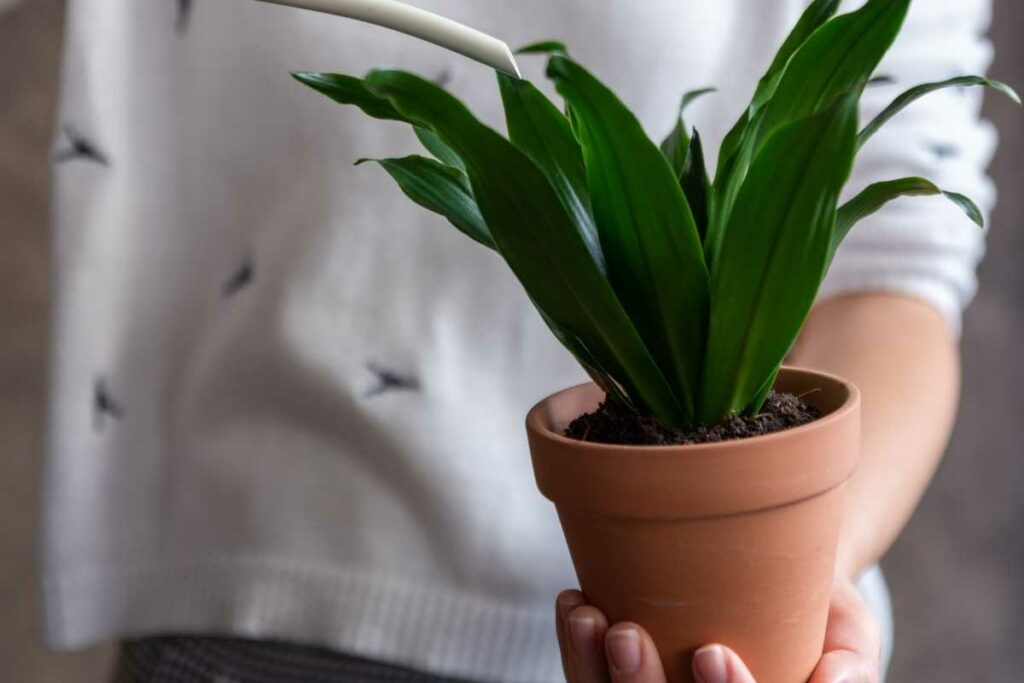
It has long leaves that are dark green in the center and have an outline of a lighter green color.
They need a lot of moisture, so the bathroom is an ideal location.
They do not need direct sunlight, but they do well if they have access to medium or bright indirect lighting.
10. Aloe Vera
In addition to being able to survive in your bathroom, the aloe vera plant is useful.
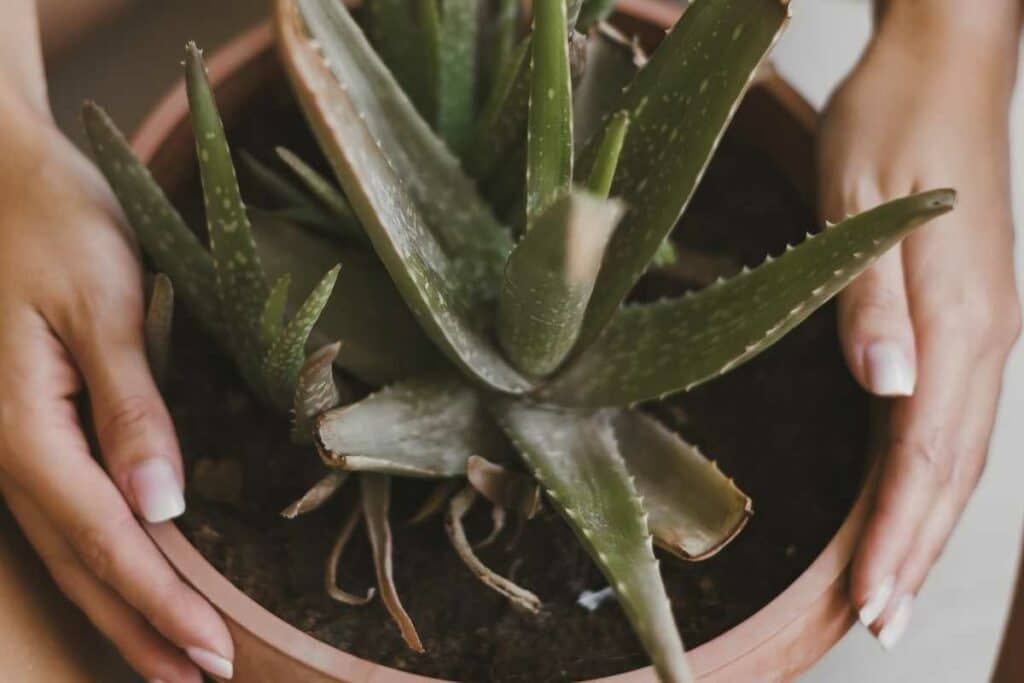
It doesn’t require a lot of sunlight or water, so it will do fine on just the humidity in your bathroom alone.
Aloe looks great in a small pot, and you can use the plant if you have bug bites, scrapes and cuts, or sunburn.
You can take a leaf and break it open, and it is soothing on your skin.
11. Azalea
People love azaleas because they have vibrant, beautiful flowers.
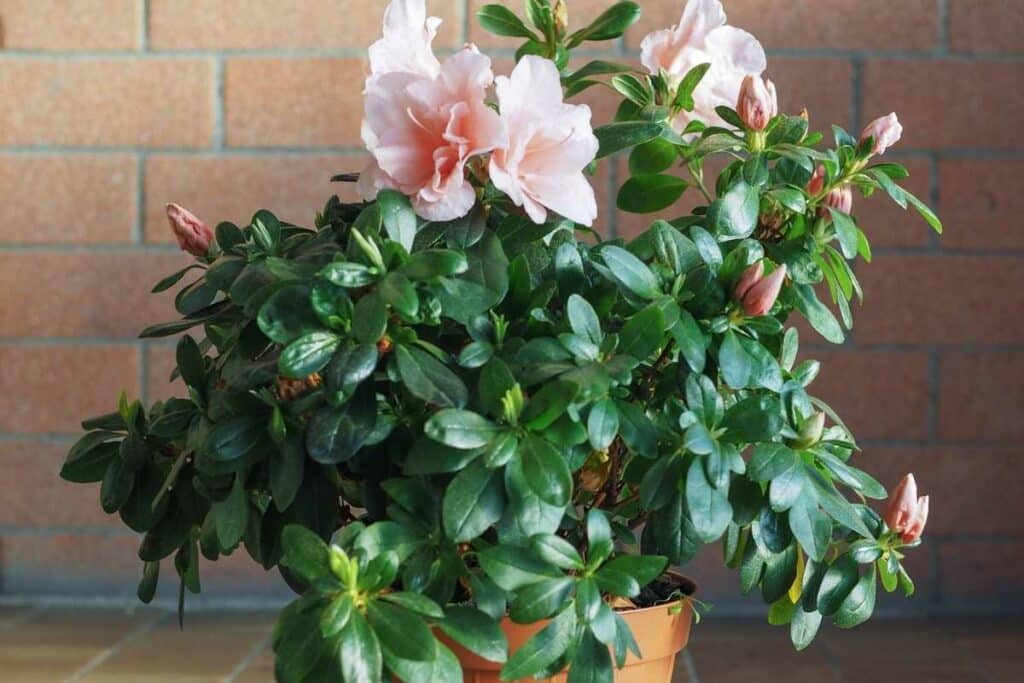
They bloom in pink, red, purple, and white, and they can make your bathroom look and smell incredible.
Azalea do well in warm environments with a lot of humidity, so the bathroom is a great location.
They will absorb the moisture and add to your decor.
12. Begonia
There are different kinds of begonias, and a lot of them do well in your house.
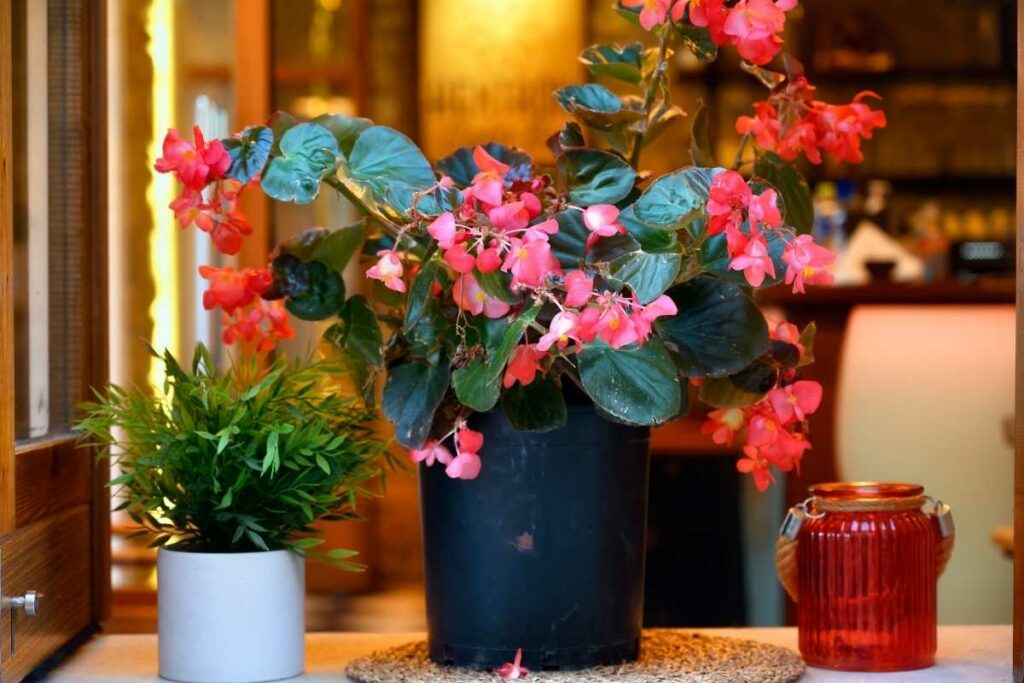
Begonia can live in containers in your bathroom and absorb the warmth and humidity.
Even Better: They are colorful and look very attractive, and they can survive in indirect sunlight.
13. Mother-in-Law’s Tongue
The mother-in-law’s tongue is another very popular plant for the bathroom.
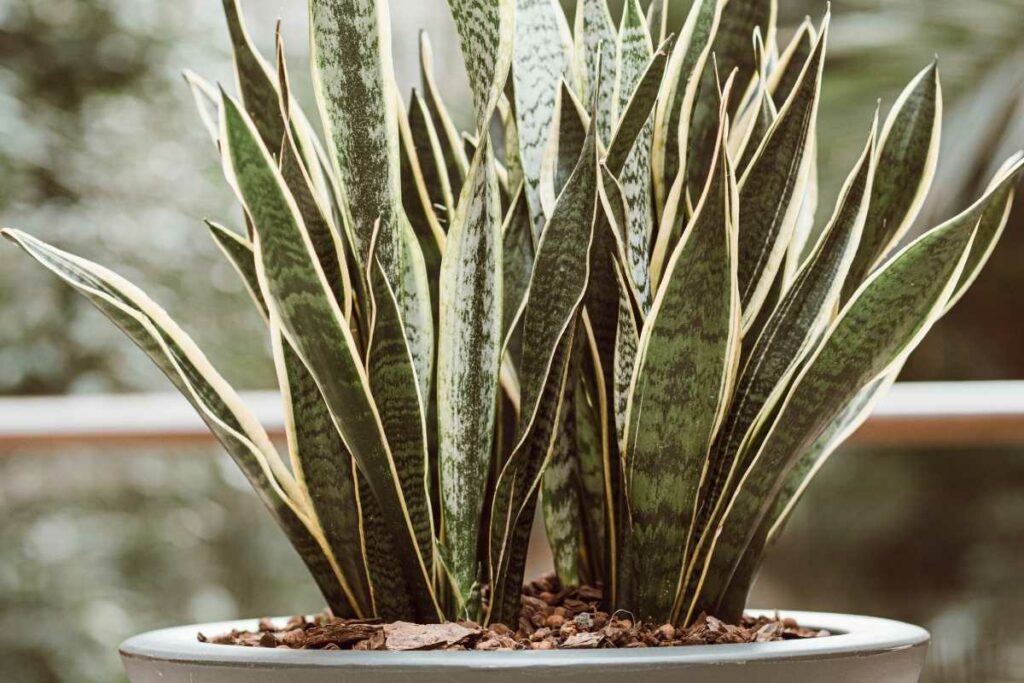
It does a great job of absorbing moisture, and it also filters toxins from cleaning products and other household items.
Mother-in-Law’s Tongue can remove formaldehyde from the air, so it makes your bathroom a healthier place.
It can handle being in low light, and it does well in high humidity.
14. Zanzibar Gem
The Zanzibar gem is also called the Zuzu plant, the eternity plant, the ZZ plant, the aroid palm, or the emerald palm.
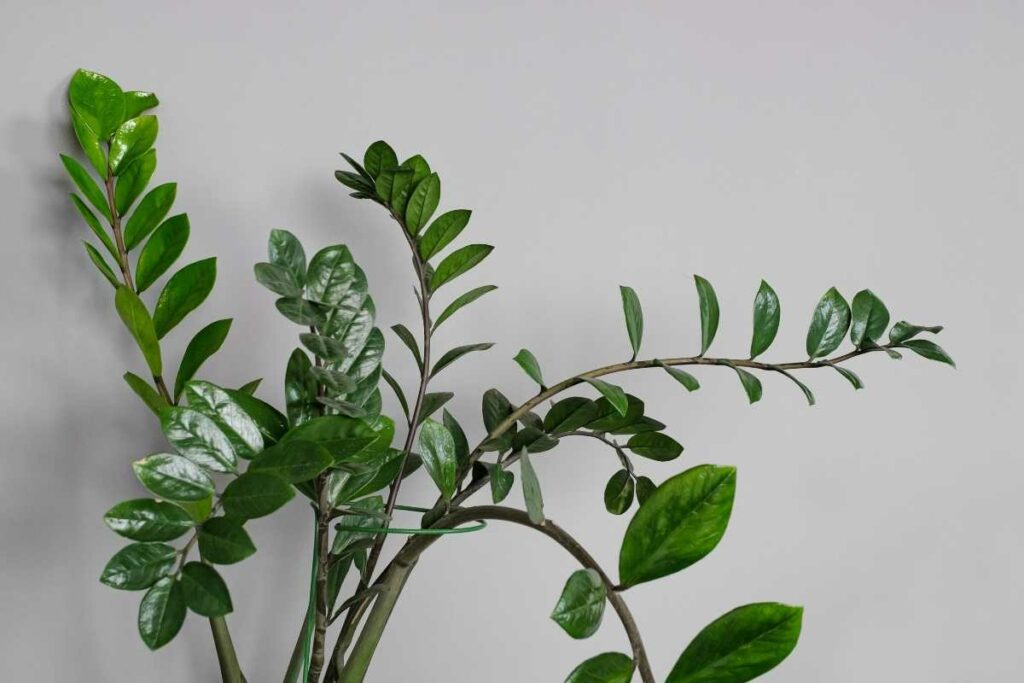
It is tough and can handle a range of conditions, including living in the bathroom.
Zanzibar Gem will survive in low light, and it can handle high humidity.
It doesn’t matter if the temperature changes rapidly, which happens in the bathroom.
You don’t have to give it a lot of water because it will absorb the moisture in your bathroom.
You don’t even have to water it more than four times each year.
15. Cast Iron Plant
The cast iron plant is popular in the bathroom, and it will absorb the moisture from the air.
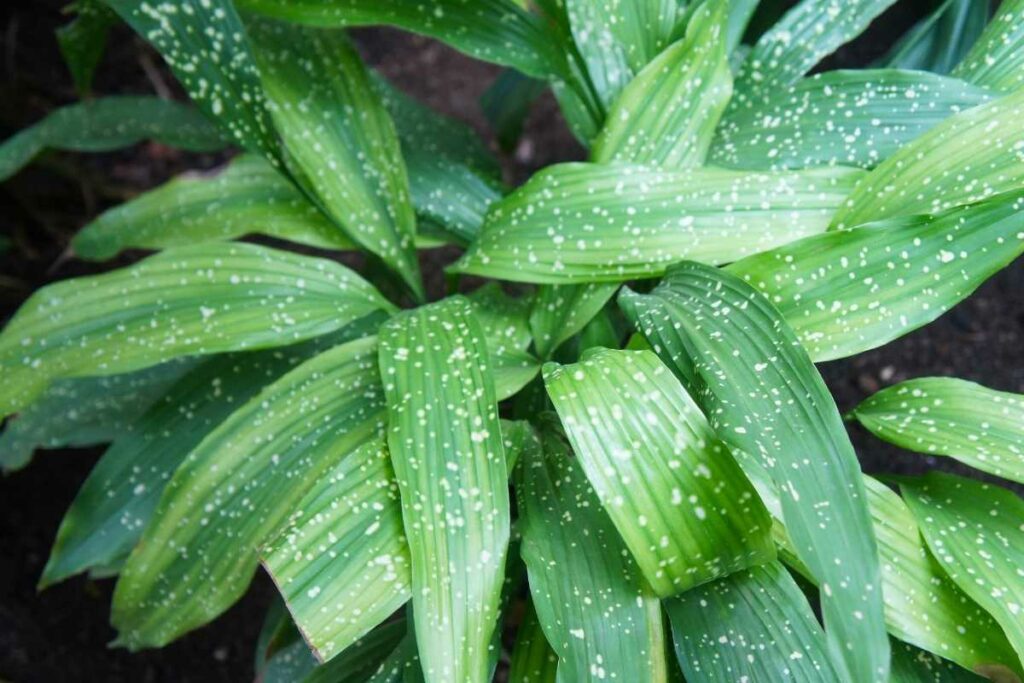
You don’t need to worry about watering it all the time as long as your bathroom has humidity.
It can grow in low light, and it is an attractive leafy plant that can be placed in a number of spots in your bathroom.
16. Pothos
If you want a plant that requires little care, the Pothos plant is a great choice.
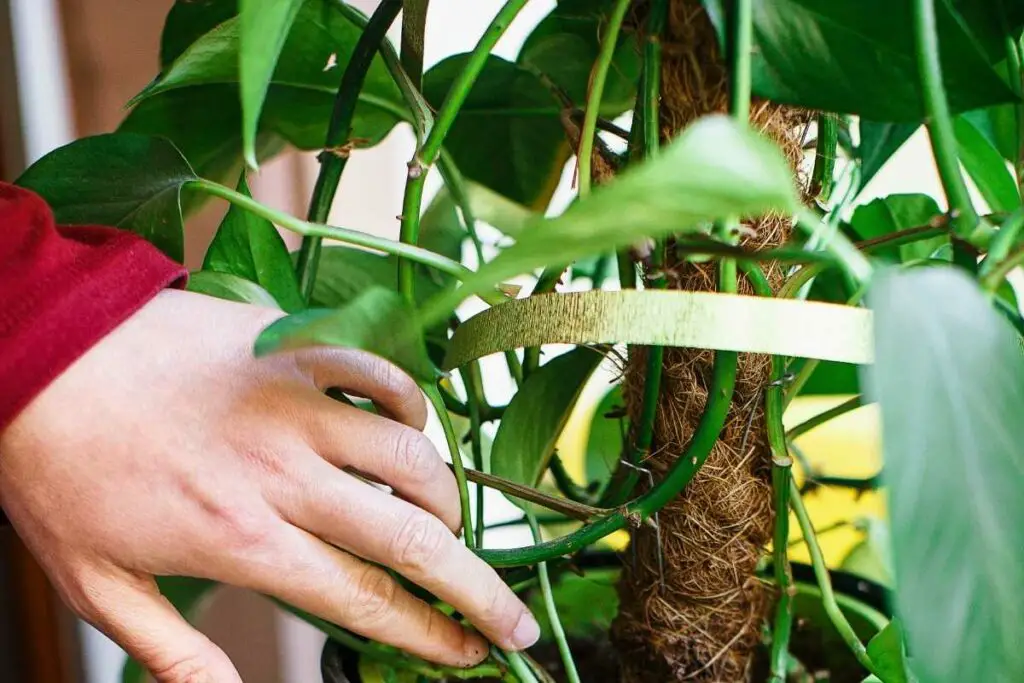
It is commonly used in all kinds of indoor situations because it is so hardy.
Pothos doesn’t need a lot of light, and you won’t have to water it regularly.
It can be placed in a hanging basket, and some people hang it in the shower.
This plant absorbs the excess moisture in your bathroom, and it grows quickly.
17. Baby’s Tear
Baby’s tear is a delicate plant. It is bright green, and it looks great in a hanging basket.
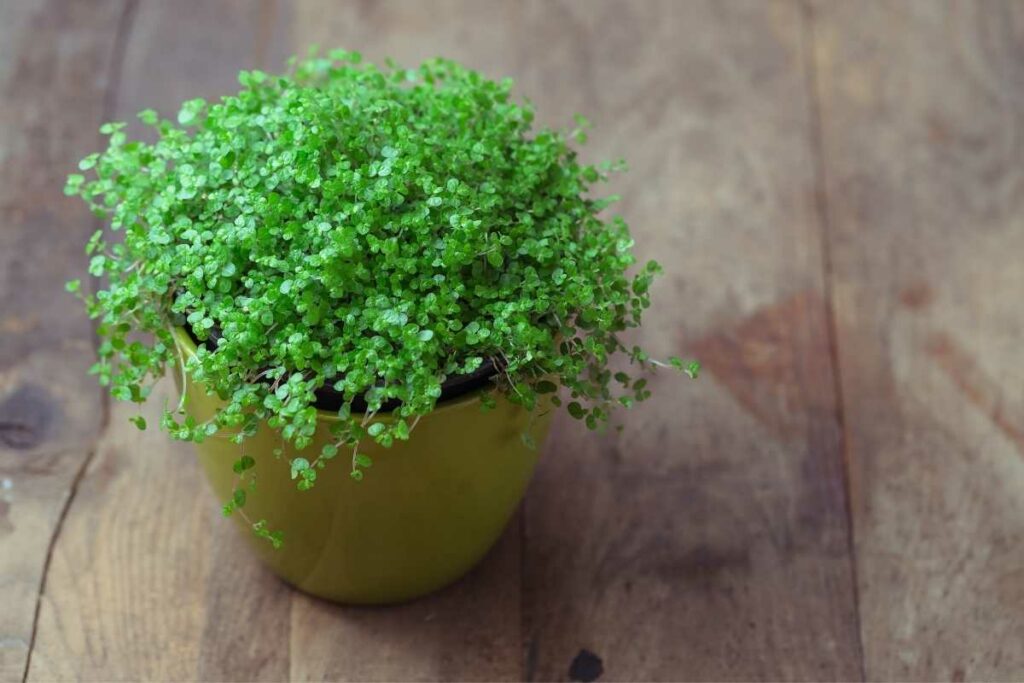
It does well in the shade so it can handle the low light in the bathroom.
Baby’s Tear does well with moisture, and it absorbs the humidity in the bathroom.
It is a beautiful plant that adds to the decor in your bathroom while it absorbs moisture.
18. Tillandsia
You can keep the Tillandsia plant in a pot in your bathroom, and it is quite attractive.
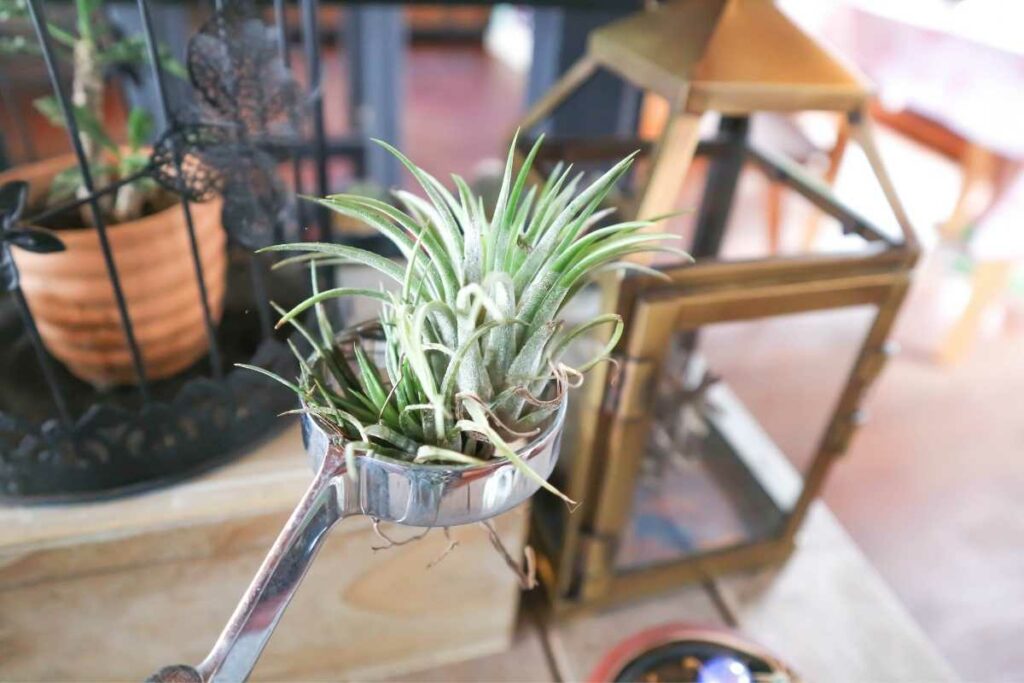
It has long green leaves, and a stalk grows in the center.
Tillandsia air plant has a touch of pink at the top of the stalk, and it handles low lighting. It also absorbs moisture through its leaves.
19. Philodendron
Another plant that is easy to grow and care for is the philodendron.
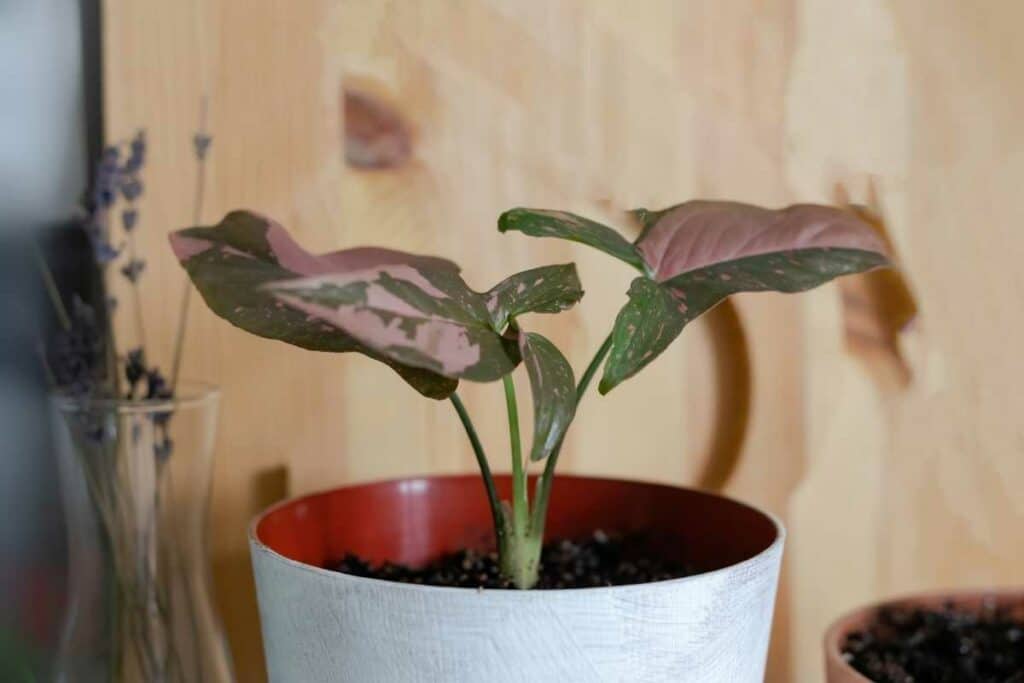
It comes in different varieties, so you can choose one that goes in a hanging basket and vines or one that grows upright.
If you give it too much water or too little water, it will drop its leaves to let you know.
It does need bright light, but it can be indirect.
They do best on a windowsill with a curtain.
20. Cyclamen
This plant has beautiful red petals, and the leaves are patterned and shaped like a heart.
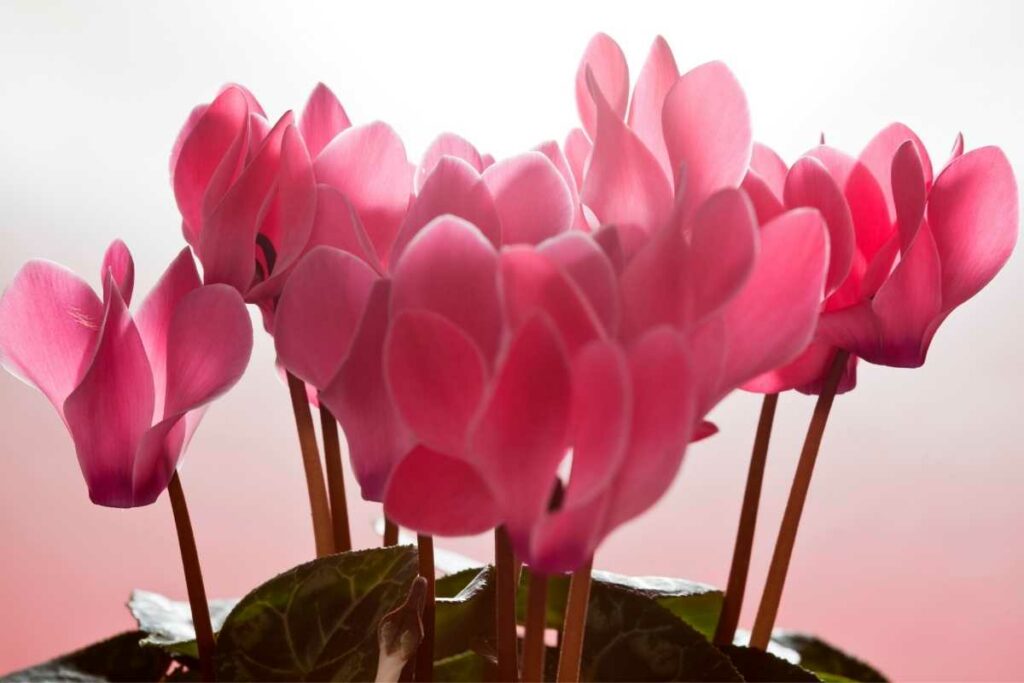
It also has a sweet scent, and it adds to the decor of your bathroom.
In addition, it removes humidity and toxins from the air.
Requirements: It does well if you let it have some morning sunlight, and it should be in a container with good drainage.
Conclusion
Adding bathroom plants that absorb moisture can help reduce contaminants from the air and add to your decor.
You can choose green plants, small trees, vines, or flowering plants, and they will help prevent mold from growing by getting rid of excess humidity.
You May Also Like
- Why Is My Catmint Floppy and How Do I Fix It?
- Can Cacti and Succulents Be Planted Together?
- Pink Quill Plant Care Guide (Beautiful Images)
- Philodendron Care, Varieties, And Aesthetic Home Arrangements
- Best House Plants for Low Light – Thriving Indoors with Minimal Sunlight
- 15 Air-Purifying Houseplants That Release The Most Oxygen
- Purple Houseplants: Your Guide to Dramatic Indoor Beauty
- Philodendron Moonlight Vs. Golden Goddess
- How to Revive Your Rubber Plant: 6 Tips to Help Your Rubber Tree Thrive Again
